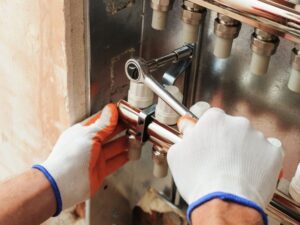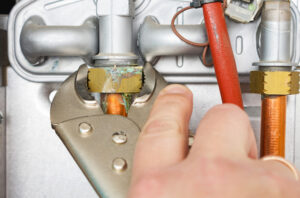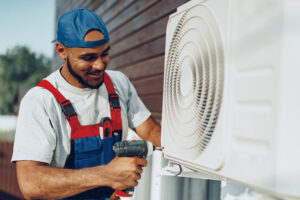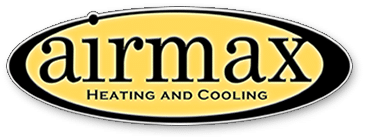How a Heat Pump Works in New Hanover County, NC
Heat pumps are a crucial part of efficiently heating your New Hanover County, NC home. Far from magic, these units are a marvel of science, transferring considerable energy compared to what they consume. Discover exactly how a heat pump works, including the different kinds available and when they may not be the appropriate choice.
Heat Pump Basics
Before getting into the specific types of heat pumps and what makes them work, let’s start with a broad overview. Heat pumps transfer heat from one place to another. The direction of the heat flow is reversible, allowing pumps to cool and also heat your home.
The science behind heat transference is quite interesting when you dig into it, with thermodynamics laying the foundation. A liquid or gas expands to fill the space of its container, which means it changes its pressure.
Heat flows to cooler temperatures. When the refrigerant’s pressure decreases, it gets cold, allowing it to absorb heat. Conversely, when the pressure increases, it gets hot, allowing it to transfer that heat out.
In order to work, the refrigerant must get colder than the air in a room to absorb the heat and cool the room. On the other hand, the refrigerant must get warmer than a room’s air to release the heat energy and warm the room
During the summer, your heat pump absorbs heat from inside your home and sends it outside. However, you reverse that over the winter to absorb heat outside and bring it to the air inside.
Air-Source Heat Pump
Air-source heat pumps are the most common type on the market and are the easiest to install. These are very similar to the common forced-air AC unit since it has an inside unit and an outside unit.
Air-source heat pumps work by transferring heat between the air inside your home and the air outside. Over the summer, circulating air moves through the system, and the refrigerant absorbs heat and transfers it outside.
Over the winter, the reversing valve flips, and the refrigerant absorbs heat from the air outside. To make this happen, it has a fan that draws air through the coils that are colder than the outside air.
Geothermal Heat Pumps
There are three different types of geothermal heat pumps you can use, depending on your particular situation. Available options include ground source and closed-loop or open-loop water systems.
The ground source is the most common geothermal type when you don’t live near a natural body of water. Rather than using an outside unit that draws air, ground source units have buried coils. The depth keeps the surrounding soil at a constant temperature throughout the year, allowing it to maintain a constant efficiency.
Water-source heat pumps are similar to ground-source units, except that they run through a body of water. The only caveat is that they must be deep enough where the lake or river doesn’t completely freeze.
Closed-loop water systems circulate the sealed refrigerant. Open loop means the system draws water from the source itself so that it’s constantly cycling new water. Open-loop systems may have a shorter lifespan due to minerals in the water that wear on the internal components.
When a Heat Pump Loses Efficiency
People appreciate the efficiency of a heat pump. However, there is a point at which that efficiency may degrade to where it’s less efficient than a furnace.
The first way this happens is when there’s not enough temperature difference between the heat transfer source and the refrigerant. The efficiency drops as the temperature difference narrows. This is primarily a problem with air-source heat pumps once the temperature drops below 40 degrees Fahrenheit. However, most heat pumps now have a heat strip that will provide heat to your home when outside temperatures dip to freezing and below.
Heat pumps also lose their efficiency over time when you neglect routine heat pump maintenance. Your system gets dirty as airborne contaminants settle around it, which affects efficiency. Maintenance visits include a deep cleaning plus testing to identify small problems before they significantly affect the system’s performance.
Don’t let a glitching heat pump leave you and your family uncomfortable. Call Airmax Heating & Cooling to schedule your heat pump repair with one of our experienced technicians in New Hanover County, NC.
Image provided by iStock
You May Also Like

Don’t Delay: Schedule Home Heating Maintenance Today
The coastal chill sweeping through Hampstead, NC, carries more than salty air and pine-scented breezes. Inside homes across our community, furnaces that… Continue Reading Don’t Delay: Schedule Home Heating Maintenance Today…

How to Avoid a Costly Furnace Breakdown and Repair This Winter
As chilly coastal winds blow through Wrightsville Beach, NC, few things are worse than realizing your furnace has decided to take an… Continue Reading How to Avoid a Costly Furnace Breakdown and Repair This Winter…

Does Your Heat Pump Need a Repair Before Heating Season?
As cooler weather approaches in Hampstead, NC, many homeowners are preparing their heating systems for the months ahead. But is your heat… Continue Reading Does Your Heat Pump Need a Repair Before Heating Season?…
